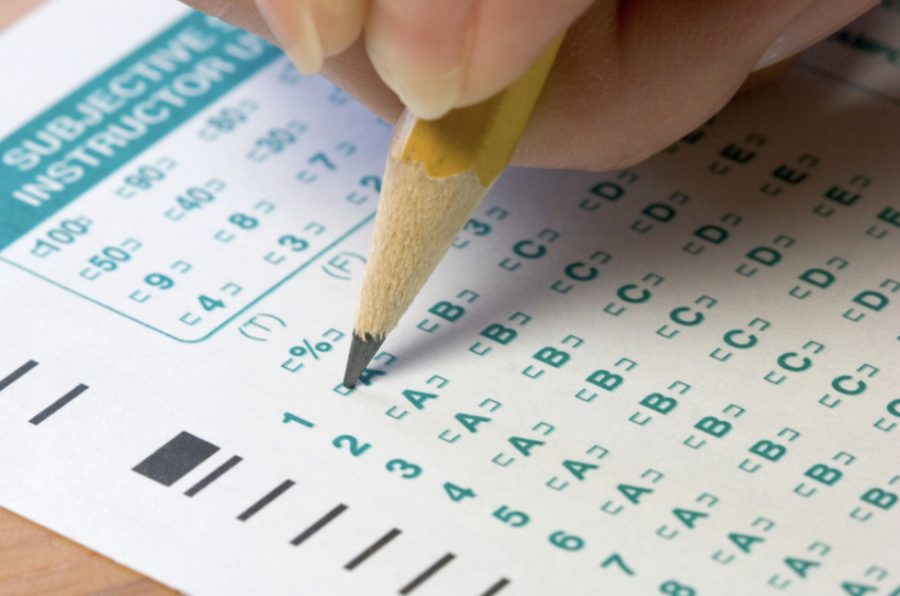Does the SAT actually help students?
May 27, 2023
Walking into school, calculator, water, and two pencils in your hand. Sweating, nauseous, queasy. Sitting down in your chair with your nametag on it. Tapping your leg anxiously, blocking out the proctor’s directions in the background. Filling in the bubbles of your name, address and school, while your hand mildly shakes. Glancing at the clock, hoping you have enough time to finish the section. This is what it feels like for some students while taking any standardized test.
At Milford High School, students are offered many opportunities to take advanced placement classes (AP), honors classes, as well as optional practice SATs. There are many resources available to students that can help advance their test-taking abilities as well as their preparation. We have many professional teachers and staff to help us do our best with what we’re given. However, for some students, test-taking just isn’t a strength.
Standardized tests are not predictors of future success. At best, these tests can quiz students on their understanding of math, science and English concepts. They don’t take into account creativity, hard work, real-world problem-solving, critical thinking, artistry, or anything else that can’t be judged by a scoring sheet of bubbles filled in with pencil. Not to say standardized testing is all bad’ there are lots of benefits to these tests as well. For starters, the tests themselves can offer evidence of academic excellence, which can be crucial in a student’s later career. Testing also gives teachers and administrators ideas on what they need to improve in their classrooms. Evaluating students’ answers can be critical for educators to understand their students’ knowledge and skills. l
However, most of these tests aren’t simply there for the benefit of students. According to Britannica.com, the standardized testing industry is worth over billions of dollars. The College Board, in particular, which is responsible for SAT and Advanced Placement testing brought in more than 1.1 billion dollars in 2018. For students, low scores on a test can prevent them from being accepted into the college of their choice. But for Teachers, it can lead to firings or even school closures. For example, Washington, D.C., School’s Chancellor Michelle Rhee fired 241 teachers under an evaluation system that holds teachers accountable for student test scores in 2010.
Sophomore Bryanna Okragly, believes that standardized testing is a great way to measure academic pros and rigor. “I obviously get nervous to take any test, but that’s why I study for them. So I can do well.” She feels that if she prepares for a test just like anyone else, she can do good like anyone else. “I feel the tests have a good way of recognizing my hard work in school and my academic achievements.” Okragly is a student who’s involved in AP and honors classes and has been her whole life. She feels that those classes are what prepare her for standardized tests and what’s going to help her build a career and be successful in her later life.
Junior Anna Uphoff, on the other hand, believes that standardized testing can’t truly evaluate the intelligence of a student enough to the point where their future depends on it. Uphoff is also a student involved in multiple AP and honors classes, but she takes those for herself. She takes the classes because she’s interested in them and wants to challenge herself, not just to prepare for harder types of tests. “I don’t think that a three-hour test with questions that have only four answer choices can gauge someone’s smartness,” Uphoff said. “And being smart doesn’t mean just knowing how to do math or English; it can mean a bunch of different things to everyone.”
Testing can mean lots of different things to different people. There’s no right or wrong answer to whether standardized testing brings more positives or negatives to education. Uphoff and Okragly are both amazing, hardworking individuals who have different views on these assessments, but they still have incredibly bright futures no matter what. In short, there are multiple advantages and disadvantages to standardized testing, based solely on your opinion and the type of learner you are. So, next time you’re sitting in a chair, in a silent room, filling in the bubbles of a test, remember don’t stress too much about it, it won’t make or break your future.
